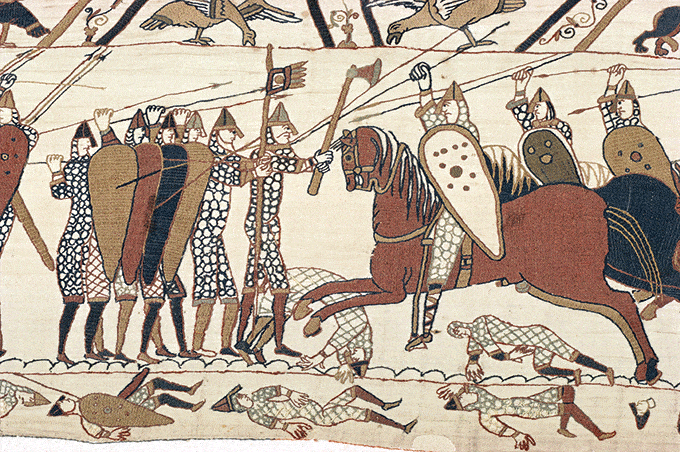
ADVERTISEMENT - CONTINUE READING BELOW
The Battle of Moscow Was the Single Most Important Battle of WW2
The Battle of Moscow, fought between the Germans and Soviets from October of 1941, to January of 1942, was the biggest battle of WW2, and the biggest battle of all time, for that matter. More combatants fought in this battle than in any other battle in history. At its height, nearly two million Germans faced about 1.4 million Soviets, and from beginning to end, more than 7 million troops took part in the fighting. Total casualties were 2.5 million, nearly two million of them Soviet. Despite the lopsided losses, it was a Soviet victory. It was also the single most important battle of WW2 – the one that, had it gone the other way, would likely have produced the most radically different historical results.
The opening months of Operation Barbarossa, the German attack on the USSR which commenced in June of 1941, had been wildly successful. The Soviets lost tanks and airplanes by the tens of thousands, and soldiers by the million. Yet, the Soviets had not been knocked out, and managed to scrap together enough new troops, poorly led and hardly trained, who nonetheless put up a tough fight.
When Operation Barbarossa finally lost its initial impetus, the Germans halted to regroup and refit. They had enough residual power for one more determined push before winter brought operations to a halt, and Hitler decided that the push should be aimed at Moscow. Accordingly, the Germans attacked from the direction of Smolensk towards Moscow in October of 1941.
What followed was not a brilliant battle by either side – more of a straightforward, smash mouth, bloody slog. In its broadest outline, the German attack, Operation Typhoon, came very close – literally within sight of the Kremlin. Then stiff Soviet resistance, combined with winter conditions for which the Germans were unprepared, stopped the attackers.
ADVERTISEMENT - CONTINUE READING BELOW
Then the Soviets received intelligence that the Japanese would not be attacking them, shifted troops from Siberia to Moscow, and counterattacked in December of 1941. That pushed the Germans back about 100 miles. Then Stalin got carried away, and against his generals’ advice, insisted on a general offensive to destroy the German armies. That only led to needless Soviet casualties.
Nonetheless, the Germans had failed to capture Moscow. It was a victory that ran counter to the perception that the Soviets won only by swamping the Germans with vastly superior numbers. Throughout most of the Battle of Moscow, the Germans were numerically superior. Yet the Soviets not only stopped them in the defensive phase, but then counterattacked and pushed them back.
It was the first time the blitzkrieg ended in failure, and it was the closest the Germans ever came to winning the war on the Eastern Front. It shattered Hitler’s dreams of an early victory, and doomed him to an attritional war against a giant whose industrial and manpower resources Germany could not match. Had it gone the other way, it would have been difficult for the Soviets to continue the fight. In addition to the psychological blow of losing their capital, the Moscow region was a major Soviet industrial and armaments production center. Moreover, Moscow was a vital communications and transport hub. Its loss would have severed effective contact between the Soviet armies operating in the north of the USSR with those in the south.

